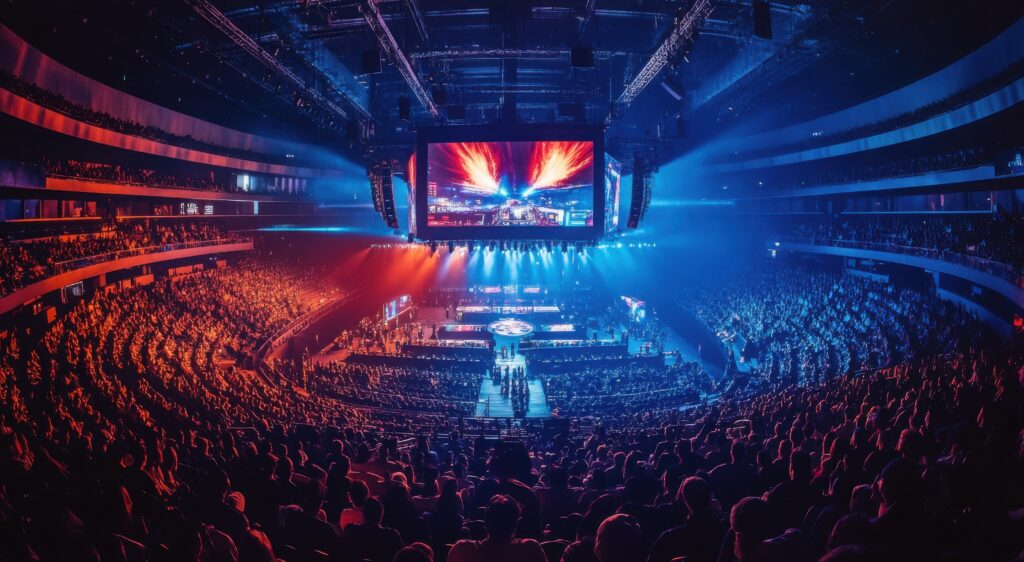Transforming Media Workflows with Cloud Solutions at Sundog Media Toolkit
In mid-March, media and entertainment companies across the globe and throughout the industry began to face what China had experienced since January — the realities of the Coronavirus Pandemic social distancing and isolation. Amidst this public health crisis, companies abruptly confronted extreme technical and workflow challenges while continuing to create and distribute content.
During this historic outbreak, Signiant launched “The Pandemic Series,” a collection of articles, interviews, and other content from the industry, for the industry.
As part of the series, Signiant interviewed industry professionals on how they transitioned and maintained remote work, what their challenges and successes were, and what lessons they’ve learned from it. Each one is a snapshot in time from their particular company, industry, geography, and personal perspective.
Bristol, UK | June 3, 2020
SIGNIANT: Tell us about Sundog Media Toolkit.
RICHARD WELSH: We are a cloud-native company established in 2013, with the express goal of making content versioning scalable and cost-effective, which we felt was an issue. From sound mixing, subtitling, dubbing, title graphics, and mastering.
Chris Ralph, my business partner, and I had worked in that space for about 12 years together. We saw that was something coming, and we felt there was going an increase in versions, not only of cinema versions going around the world for international release but also for TV, especially with streaming platforms starting to gather pace. The manual approach to this, and an infrastructure-based approach to versioning, was probably not going to scale infinitely into the future, and that there was a technology solution somewhere.
Obviously automating the process was the big, big, complex part of it. But beyond that, we were wondering, well, how do you scale up and down on demand? How do you do that cost-effectively? How do you do it without infrastructure? Or, do you do it without infrastructure?
SIGNIANT: You found that solution in the cloud. But you didn’t just lift-and-shift an existing workflow into the cloud. You built it from the cloud up.
RICHARD WELSH: Or, cloud down! I mean, we didn’t open our notepads and immediately right down the word “cloud,” but as we worked through how we felt we might solve that problem, we realized that cloud seemed like the obvious solution. So, we set about building Sundog to effectively solve that issue with cloud software as a service platform.
I can’t say there was a gap in the market, but we could see it coming. We could see the day coming when the version numbers would be a problem. In cinema at the time, we would have been doing maybe 200, maximum 250 versions, on a movie. By 2015/2016, we were hearing numbers in the 400 range. And I know some movies have now topped 600 versions for theatrical release alone. Which is crazy. Think about then how many downstream versions have to be made as well. The whole challenge of mastering these versions efficiently, cost-effectively, is huge. And it’s certainly a much bigger problem today than it was when we started the company.
SIGNIANT: Fast forward to early this year. You’re an established company with a deep client base and then, all of a sudden, the pandemic hits. What was your first indication that there was going to be a big disruption in your business, not just with your supply chain but also within your company?
RICHARD WELSH: Around February we saw some of the studio work already being held back a little bit. The pandemic was starting to establish itself, certainly in Asia. And that’s a big part of the international market for theatrical release. I think they were concerned there may be a challenge with releasing to cinema when potentially a sizeable chunk of your market, particularly in China, was going to be impacted.
SIGNIANT: Was it an incremental decline?
RICHARD WELSH: No. Because it was effectively whole titles they were just holding back. I think the nervousness kicked in straight away. Theatrical releasing is a cautious business at the best of times. We see titles getting held back for pure marketing reasons. Some studios were suddenly deciding, “Actually, we shouldn’t be releasing because we know that we’re going to lose a chunk of our international market.” And so, if you have maybe one third of your international territories unable to show the movie because they’re already in lockdown, then that kind of wipes out the whole release under those circumstances. And that is what we saw happening late February, and then certainly into March.
SIGNIANT: When did Sundog make a transition because of the pandemic?
RICHARD WELSH: In terms of as a business, we saw in March pretty quickly that we were going to be materially impacted ourselves. Not just with the work that we were doing, but actually in terms of physically working from an office. We took the decision to close the office in advance of being advised by the government that we should close, that if you can work at home, do. But we weren’t far ahead, if I’m honest.
We’d talked about it for a couple of weeks, and then we’d made the decision over that weekend that we should do it. And then we got everyone together as a group, agreed how we would handle that.
SIGNIANT: How did that go?
RICHARD WELSH: I will say, actually, the team was really good because we did contingency planning for that at least two weeks before lockdown happened. Maybe a bit more. We’re a cloud-native company. We do really love that, so more or less everything that we do has a cloud-centric working environment. We already heavily leaned on things like Confluence, Xero, Clockify, Monday for project planning, Google Apps for email and document sharing and so on. And pretty much everything we do was already centralized in that way.
SIGNIANT: Your remote work infrastructure was already in place.
RICHARD WELSH: We weren’t concerned about working from home as such. But we were more concerned that one of the team may be ill. And how do we support them and support their role? And we’re a small team, it’s only 12, so we could see that potentially one person being ill could be critical to a component of what we did. But we did lots of contingency planning around that, identified critical items before we had to go into lockdown. We already had our contingencies figured out.
SIGNIANT: How much working from home were you already doing? Were you primarily at the office? Or was it a mixture? Or was it primarily people working from home?
RICHARD WELSH: We’ve only had an office for two years. Not even two full years, actually, when this happened. We’d supported remote working pretty early on. Most people would be in the office some of the week. We had a couple of people who were primarily remote and about half the team were regularly in and out of the office.
SIGNIANT: What has been challenging for you during these last three months?
RICHARD WELSH: I’ll be honest with you, it’s my first time running my own business. And whilst we’ve been at it for quite a few years, I think this was quite a big mountain to climb in terms of understanding how we could get through it. I think now, we’ve found a way to work. It feels a little bit more on an even keel. But to start with, it very much felt like rough waters, to stretch the analogy.
The one that’s coming racing towards us, and I suppose actually occurred pretty early on, was the lack of NAB, and now the lack of IBC. If trade shows are a big part of your marketing and sales strategy, as they certainly were for us, how do we replace that? That’s a real challenge. How do we engage new business or new customers? How do you make your product stand out in an ever-increasingly noisy environment online?
SIGNIANT: Online engagement doesn’t quite make up for that opportunity.
RICHARD WELSH: I think the worst thing about that is that everybody is spending most of their time online anyway, as we are right now. This is how we’re doing business, which means that you’re probably spending less time, let’s say, shopping around online. It’s not something you go to do maybe, “Oh, I’ll go and have a look at some new product stuff as a relaxing break from being online.” You’re spending the whole time on the web, and so actually what you want to do is disconnect when you want to relax and turn off a little bit. I think from my point of view, that sales and marketing part of it is one that still feels like it’s a long way to go before you really see some stability in strategy.
SIGNIANT: And now we’re looking at returning to work. Things are opening up. Phases are being created to have different sectors come back. Guidelines are being written for production and for offices. What does your return to work look like?
RICHARD WELSH: We, at the moment, are very happy with working from home, so we’re not in a hurry to do that. We don’t think it impacts the business in any way. We have a fairly small office in the first place, it would actually be challenging for us to try and get everyone back to the office anyway. We’re in no rush to do that. Once restrictions are fully lifted, we will consider how we go back to the office. But it will be more around what’s our common working practice than, let’s say, COVID considerations.
Now, I have friends who are on the production side, and it’s been really, pretty awful for them. Because it almost felt like no light at the end of the tunnel for a while there. And now that they have ways in which they can start shooting again and doing the work they need to do. I’m really happy to see that.
SIGNIANT: Do you think it’s the right time to return to work, for the industry?
RICHARD WELSH: I think it’s difficult. I think it’s really difficult. It’s easy to say, “Well, the best way is to lock everything down and keep everyone in,” but that’s not sustainable on many levels. Most businesses have seen some impact. For some of them, it’s been really, crippling. Cinemas, like restaurants and other places where people gather in large numbers in close proximity, I can see why they couldn’t open.
But at least having a plan to allow them some opportunity to open, I feel, it’s important. Especially because we don’t really know how long this will go on. So, it may be that they can ease back in. And to deny them the opportunity to do that early on, if it can be done safely, it seems wrong. But that said, we’ve got to do things responsibly.
SIGNIANT: It’s a hard decision to make.
RICHARD WELSH: Exactly. I mean, how do you balance that off? As a business, obviously your staff’s well-being comes first. It has to. But at the same time, part of their well-being is the ability to work and make a living. It’s difficult. Very difficult.
SIGNIANT: In this return to work, do you believe physical offices will be as important as before?
RICHARD WELSH: You have to look at that now and wonder. I think there is a certain element of comfort in having everyone around. And I do believe in face-to-face interaction being a really important part of running a business, especially a small business. At the same time, there’s certain historic pressures that to appear to be a serious business, you have to have your own office. I feel that one of the good things is that’s essentially gone out of the window now. I think everyone accepts this can be done without needing a physical location — clearly if we can run the business for several months without really going into the office at all. So, it does beg the question, why do you have an office?
SIGNIANT: If you could go back to February and give yourself advice after experiencing this, would that be?
RICHARD WELSH: That’s a difficult one. I guess just a bit more preparedness as a business, from a business resilience point of view. I would say specifically pandemic effects are something, whilst government agencies, critical care services, insurance, finance organizations, etc probably plan for, probably most businesses hadn’t.
I think we were in the right space, in terms of as a business. We were doing everything, from an operations point of view, in the cloud. We are cloud-native. We were kind of where business is heading anyway. And actually, I think the impact of this episode has been to accelerate the entire industry towards that kind of cloud future. Maybe faster than some people would like, but realistically, it takes things like this to catalyze adoption of technology.
I suspect most companies would say a similar thing, but it’s more about business resilience, having good preparation for that rainy day when it comes. We’ve always been wanting to invest in the long-term future of technology so we’re constantly pushing more technology development, more research and so on. And that’s speculation, which is fine when times are good. It’s slightly harder to achieve when times are tough.
SIGNIANT: Is it a bit validating to have taken the chance on cloud so early?
RICHARD WELSH: I’m really happy with where we were, but yes, I think in some ways, it’s a validation. With that said, it feels a little bit too much like taking advantage of the situation. [It is] a fundamental technology we’ve believed in since the get-go — virtual and automating those things that can be automated, and not having huge amounts of manual process contingent on large teams of people. Those were always the fundamental principles of what we were trying to do. They just came into sharp focus with this whole pandemic.
SIGNIANT: Are you seeing any signs that people in the industry are changing because of the pandemic?
RICHARD WELSH: One of the things I’ve noticed is I’m interacting with individuals who are out their normal business environment. And I think as individuals, we’ve all interacted with each other on a much more personal level then we’re used to. Speaking to someone at home and they’ve got their dog barking in the background, you’ve got the kids running around — I think it’s improved the human-level interaction.
What it’s highlighted is that we need to be much more supportive of each other. Businesses need to be more supportive of each other, even competitors. Individuals need to be supportive of other individuals within their business and across their partners, their customers, their vendors. It’s really important, especially at a time like this, which is really difficult. Whether you’ve suffered loss, whether you’re not able to see loved ones, whether you’re just struggling with either isolation or not having your social interaction you would normally experience. I think that support network’s really important.
SIGNIANT: Beyond any technical and workflow benefits, are there other positives coming out of this pandemic?
RICHARD WELSH: I think the industry can come out of this with a much more human approach to everything. The big positive we should take away from the whole experience of the pandemic is that we can be more supportive of each other and have more humanity. I think it’s the most important thing we can do, because we are all in this together. Whatever this is, whether it’s a pandemic or just everyday life. We’ve all got to live on the same planet.
This interview was edited and condensed for clarity.


